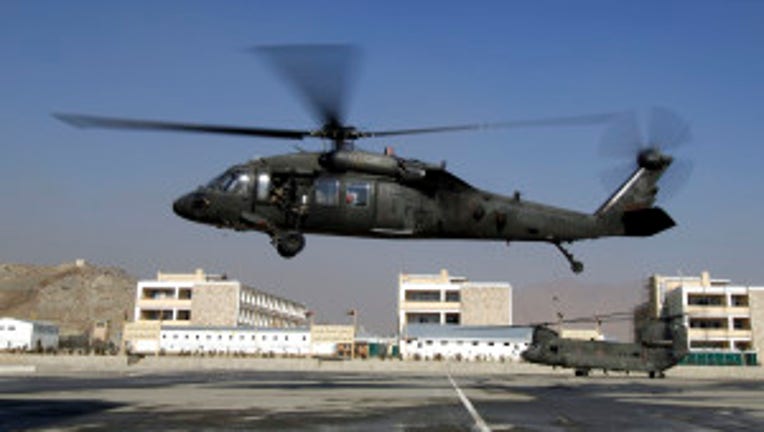In Afghanistan, insurgents attack Kabul airport

Military side of Kabul International Airport.
By Hashmat Baktash and Mark Magnier
Los Angeles Times
KABUL, Afghanistan -- Insurgents attacked the military side of Kabul’s international airport at dawn Monday, jarring residents of the Afghan capital awake to the sound of explosions and gunfire. The area houses a key NATO strategic headquarters, but that part of the complex reportedly was not breached.
The attack began around 4:20 a.m., just before sunrise in Kabul, with those living in the neighborhood reporting several blasts that sounded like rocket-propelled grenades, followed by automatic gunfire. All commercial flights from the adjoining civilian airport were suspended.
According to Mohammad Ayob Salangi, Kabul’s chief of police, several attackers wearing suicide vests occupied a tall building under construction on the northern perimeter of the airport, giving them a vantage point to fire down at the military facility. This led to a protracted gun battle with Afghan security. Initial reports suggested there could be as many as 10 attackers.
The gunmen used heavy weapons, Salangi said, adding that a vehicle filled with explosives was detonated by Afghan security forces near the building where the attackers had holed up. About four hours into the attack, at least one insurgent responsible for launching rocket-propelled grenades was shot dead, the official added, with no immediate casualties on the government side.
In a statement emailed to reporters, the Taliban claimed responsibility for the attack. It said a group of martyr attackers stormed the military side of the international airport used by the Americans, bringing heavy casualties on Afghan and international security forces. Insurgents in Afghanistan have a history of exaggerating their results and making claims for attacks they didn’t initiate as part of their use of psychological warfare, analysts said.
The military side of Kabul Airport has an air wing for the Afghan Air Force. It also handles landings, takeoffs and servicing of NATO transport and other aircraft, while the NATO coalition's Joint Command headquarters runs day-to-day operations of the nearly 12-year-old war against insurgents.

